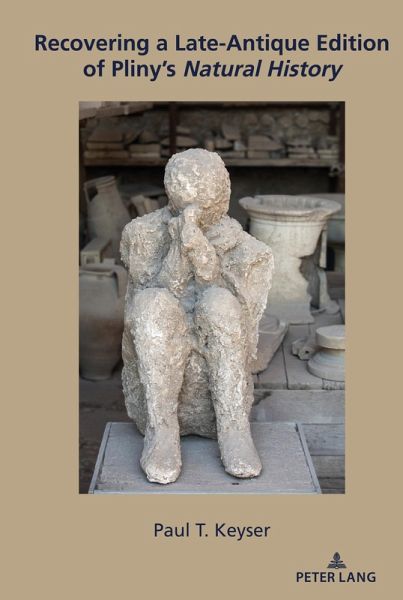
Recovering a Late-Antique Edition of Pliny's Natural History" (eBook, PDF)
Versandkostenfrei!
Sofort per Download lieferbar
Statt: 100,65 €**
77,95 €
inkl. MwSt.
**Preis der gedruckten Ausgabe (Gebundenes Buch)
Alle Infos zum eBook verschenkenWeitere Ausgaben:

PAYBACK Punkte
39 °P sammeln!
Half a dozen authors quote a total of over forty extracts from Pliny's Natural History that are absent from our manuscripts of Pliny. These extracts have been virtually ignored by scholars, and never studied systematically. This book demonstrates that the half-dozen sources, Latin writers of the fifth to thirteenth centuries CE, are reliable, and argues that their extracts should be received as good evidence of a hitherto unsuspected augmented edition of Pliny, probably produced around 300 to 350 CE. Greek writers of the same era produced augmented versions of scientific texts to update, expan...
Half a dozen authors quote a total of over forty extracts from Pliny's Natural History that are absent from our manuscripts of Pliny. These extracts have been virtually ignored by scholars, and never studied systematically. This book demonstrates that the half-dozen sources, Latin writers of the fifth to thirteenth centuries CE, are reliable, and argues that their extracts should be received as good evidence of a hitherto unsuspected augmented edition of Pliny, probably produced around 300 to 350 CE. Greek writers of the same era produced augmented versions of scientific texts to update, expand, and "complete" the work of the original authors. Pliny's own work is composed in such a way as to invite augmentation. Paul T. Keyser's efforts to recover the augmented Natural History suggest that late-antique Latin writers were also renovators of their scientific literature. The unknown augmentor, Keyser argues, was aiming to "complete" Pliny with new data, and to organize Pliny's sometimes scattered presentations, all with the aim of making Pliny's work more useful. The evidence shows that even in unfavorable times, some Latin writers were able to continue practicing science.
Dieser Download kann aus rechtlichen Gründen nur mit Rechnungsadresse in A, D ausgeliefert werden.



